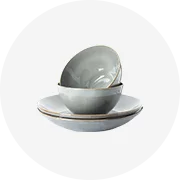
Composite Fence Pickets Top Quality 6x8 Ft White Color Plastic PVC Garden Buildings/Vinyl Cheap Custom Panel Privacy Fence Panels For Sale
















Fencing wires, also known as wire fencing or wire mesh, are commonly used for wire fence panels to create barriers, enclosures, or boundaries. They are typically made from materials such as galvanized steel, stainless steel, or other alloys. The choice of material depends on factors like durability, strength, and resistance to corrosion. There are several types of fencing wires available, each with their characteristics and applications.
Barbed Wire: Barbed wire is one of the most used types of fencing wire. It consists of twisted wire strands with sharp barbs evenly spaced along the wires. Barbed wire fence is primarily used for security purposes and to prevent unauthorized entry. It is commonly used in farms for livestock containment and as a deterrent for intruders.
High Tensile Wire: High tensile wire is a strong and durable fencing wire made from steel with a high tensile strength. It is designed to withstand tension and pressure without stretching or breaking. High tensile wire is commonly used in livestock fencing, as it provides strength and durability to contain animals effectively.
Woven Wire Fencing: Woven wire fencing, also known as field fence or farm fence, consists of inter-woven horizontal and vertical wires used to create a grid pattern. It is commonly used to define boundaries, contain livestock or protect crops. Woven wire fence offers strength, flexibility, and visibility.
Electric Fence Wire: Electric fence wire is a specialized type of fencing wire designed to carry electric current. It is used to deter animals or intruders by non-lethal shock. Electric fence wire is commonly used in agricultural settings for livestock containment and wildlife management.
Chain Link Fence Wire: Chain link fence wire is made of interlocking wire mesh formed in a diamond pattern. It is a versatile type of fencing wire used for a wide range of applications, including residential, commercial, and industrial fencing. They are often used to secure properties, create enclosures, or define boundaries.
Welded Wire Mesh: Welded wire mesh consists of individual wires welded together at their intersections to form a grid pattern. It is commonly used in places such as construction sites, residential fencing, garden enclosures, and animal cages. Welded wire fence offers strength, rigidity, and versatility.
Fencing wires have a wide range of uses and applications in various environments. They are commonly used for security purposes to create physical barriers and deter unauthorized access. Wire mesh panels are used in residential areas, commercial properties, government facilities, and industrial sites to protect assets, prevent trespassing, and enhance security. In agricultural settings, hog wire fences are extensively used to create enclosures and contain livestock, such as cattle, horses, sheep, or poultry. They help keep animals within designated areas, prevent them from straying, and protect them from predators.
One common use of fencing wires is for boundary definition between properties, land parcels, or farms. They provide a clear visual indication of property lines and help prevent encroachment disputes. Fencing wires are also utilized to protect gardens, orchards, or crops from animals, such as rabbits, deer, or birds. The fence creates a physical barrier that prevents animals from accessing and damaging plants. Sports facilities like baseball diamonds, soccer pitches, and tennis courts frequently use welded wire fence panels. They offer protection for players and spectators, demarcate playing areas, and prohibit unwanted entry.
In building sites, temporary barriers are created with wire mesh fence to secure the site from unauthorized entry. They help keep workers safe, prevent theft or vandalism, and maintain the privacy of the construction area. Safety enclosures around hazardous areas, machinery, or equipment are made using fencing wires. They prevent unauthorized access, reduce the risk of accidents, and ensure compliance with safety regulations. Wildlife management also benefits from the usage of fencing wires. Specialized fences designed to be wildlife-friendly are used to keep animals under control and to protect vulnerable habitats. They can lessen confrontations between people and wildlife, keep animals out of particular locations, and protect natural habitats.